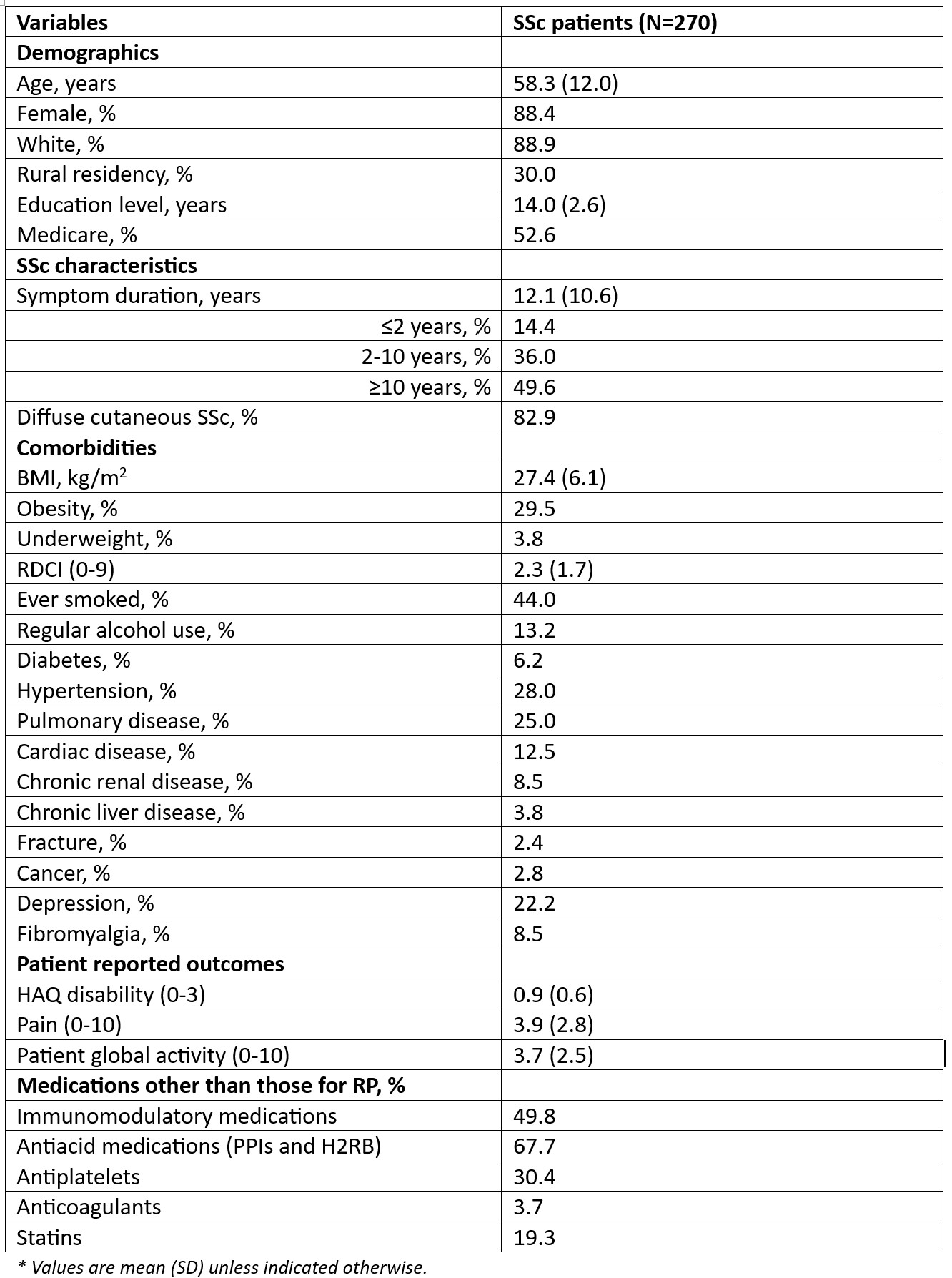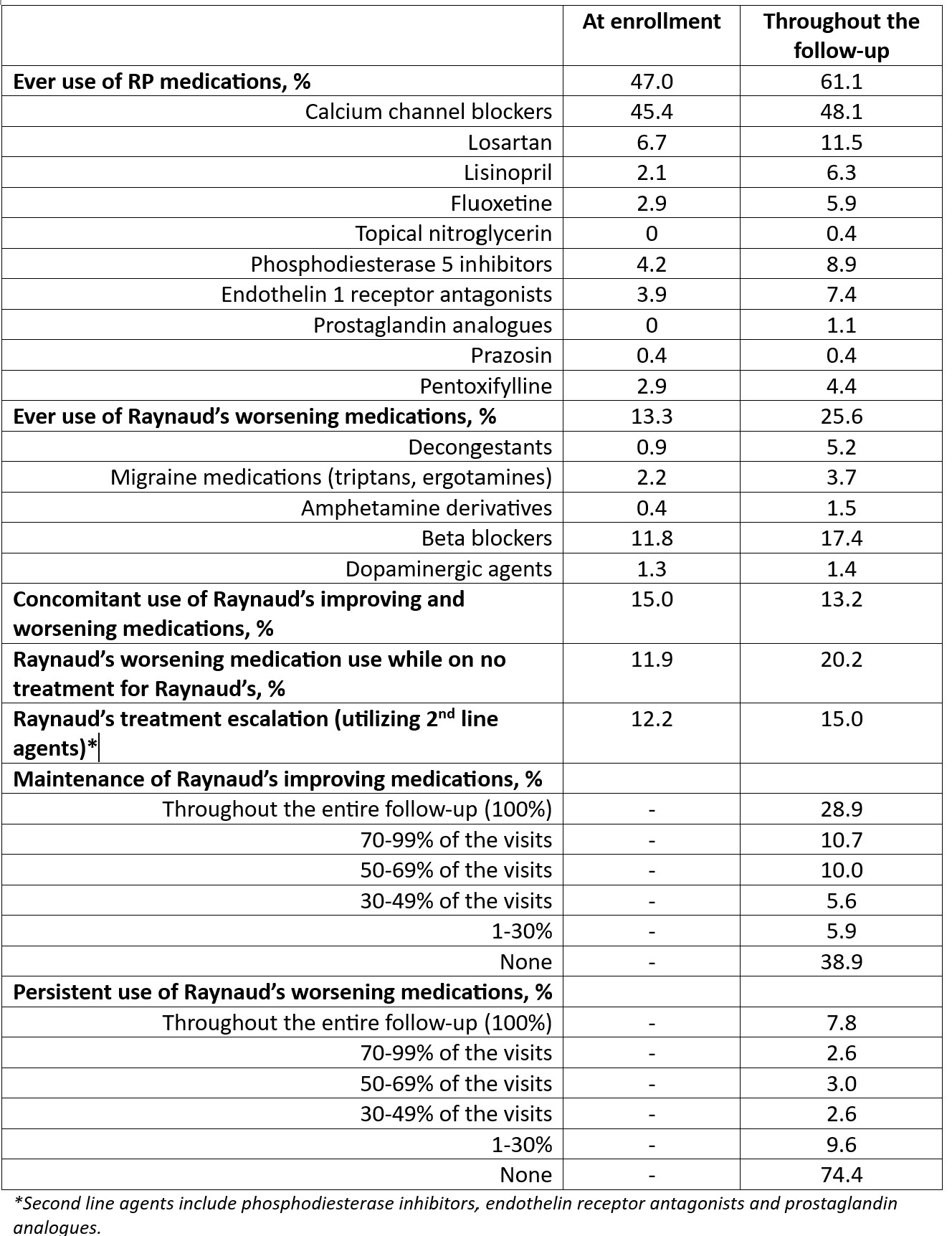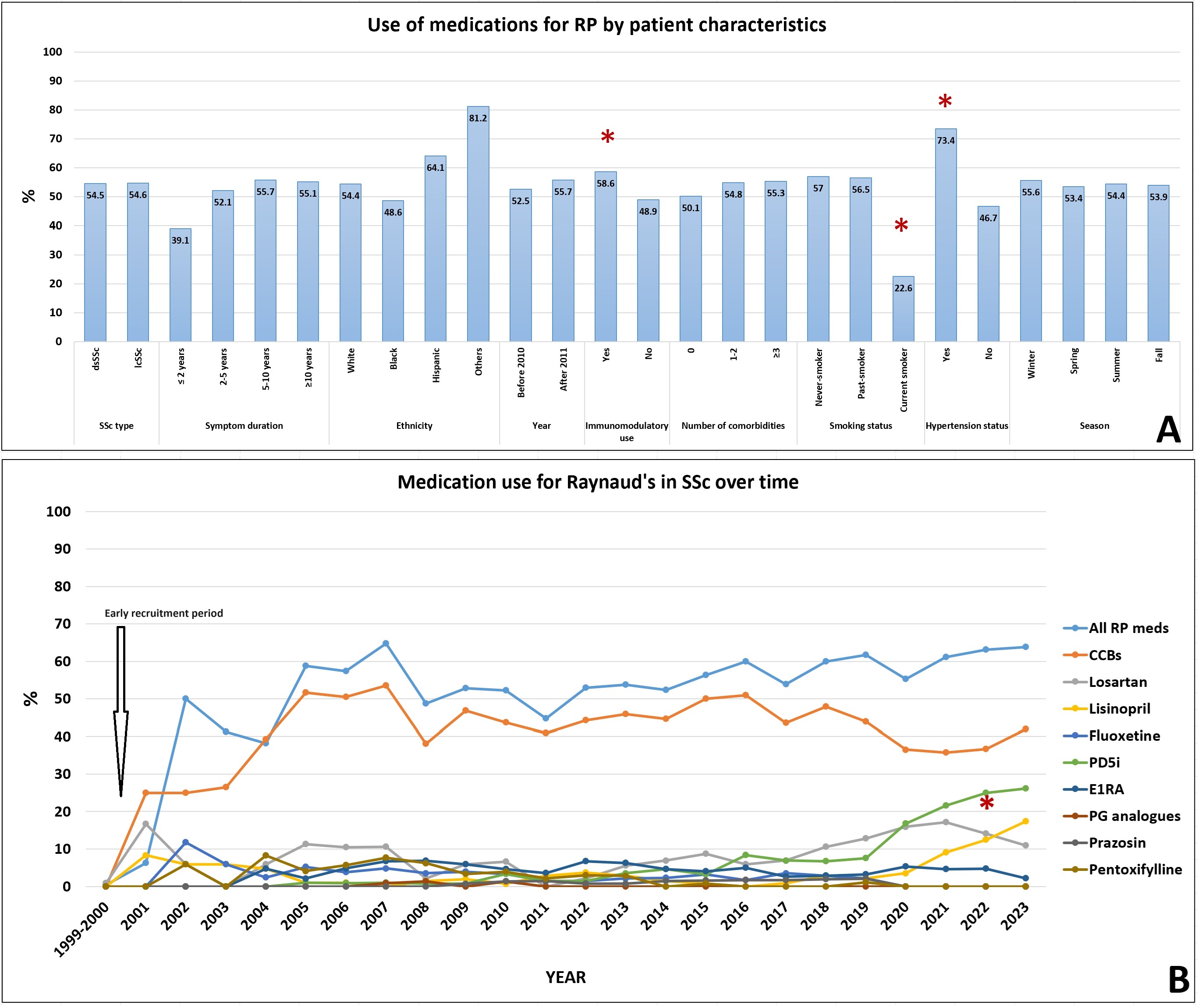Session Information
Session Type: Poster Session A
Session Time: 10:30AM-12:30PM
Background/Purpose: Raynaud’s phenomenon (RP) and the complex vasculopathy of systemic sclerosis (SSc) can lead to chronic digital ischemia, ulcerations, and necrosis with significant pain and hand function loss. Being not only the most common SSc manifestation, SSc-RP is one of the highest patient-reported disease impacts on quality-of-life. Early interventions for RP can have an important impact on altering the disease course by preventing ischemia-reperfusion injury and subsequent oxidative stress with further endothelial dysfunction and fibrosis in SSc. However, it is unknown how adequately RP medications are utilized in real-world, community-based settings, while avoiding RP-worsening medications. We aimed to assess RP management patterns in SSc patients among the United States community-based rheumatologists.
Methods: We used FORWARD, The National Databank for Rheumatic Diseases study, which consists of rheumatologist diagnosed patients. We identified adult SSc patients who participated in FORWARD between 1999 and 2023 for this study. Data is collected semi-annually with questions on disease characteristics, comorbidities, medications, and patient-reported outcomes (health assessment questionnaire, patient global assessment, pain) and validated using medical records. Medications that can improve or worsen RP were identified. Descriptive statistics were used to assess RP management patterns.
Results: The study included 270 SSc patients (~83% diffuse) with a mean symptom duration of 12.1 (10.6) years (30%, ≤5 years of symptoms) at enrollment (Table 1). The median (IQR) follow-up was 3.4 (1.3-7.8) years. During follow-up, 61% of patients used a medication for RP, which was most frequently calcium channel blockers (CCBs) (48%). About 13% and 20% of patients received RP-worsening medications while receiving or not receiving medications for RP, respectively (Table 2). Second-line agents (phosphodiesterase-5 inhibitors [PD5i], endothelin 1 receptor antagonists, or prostaglandin analogs) were ever utilized only in 15% of the patients. Moreover, only ~29% of the patients remained on medications for RP throughout their follow-up. While patients who had hypertension or were on immunomodulatory medications were more likely to be on RP medications, patients who had early disease (≤2 years), were current smokers, or black were less likely to be on RP medications (Figure). From 2000 to 2023, CCBs remained stably the most common RP medication prescribed. PD5i have been increasing since 2019, but utilization of non-CCB RP medication remained < 10% (Figure).
Conclusion: Medications for RP, especially non-CCB, remain underutilized for SSc-RP in community-based practice. Less than one-third of patients stay on RP medications long-term. A significant number of patients continue to be on RP-worsening medications even while not on medication for RP, which emphasizes the importance of carefully reviewing medications in SSc patients. Given that early intervention for RP can reduce complications, further endothelial damage, and fibrosis, more vigorous awareness programs should be implemented about RP management in the community practice.
To cite this abstract in AMA style:
Ozen G, Pedro S, Michaud K, Domsic R. Patterns of Raynaud’s Phenomenon Management in Patients with Systemic Sclerosis: A Real-World Data from Community-Based Practices in the United States [abstract]. Arthritis Rheumatol. 2024; 76 (suppl 9). https://acrabstracts.org/abstract/patterns-of-raynauds-phenomenon-management-in-patients-with-systemic-sclerosis-a-real-world-data-from-community-based-practices-in-the-united-states/. Accessed .« Back to ACR Convergence 2024
ACR Meeting Abstracts - https://acrabstracts.org/abstract/patterns-of-raynauds-phenomenon-management-in-patients-with-systemic-sclerosis-a-real-world-data-from-community-based-practices-in-the-united-states/



